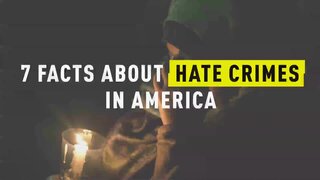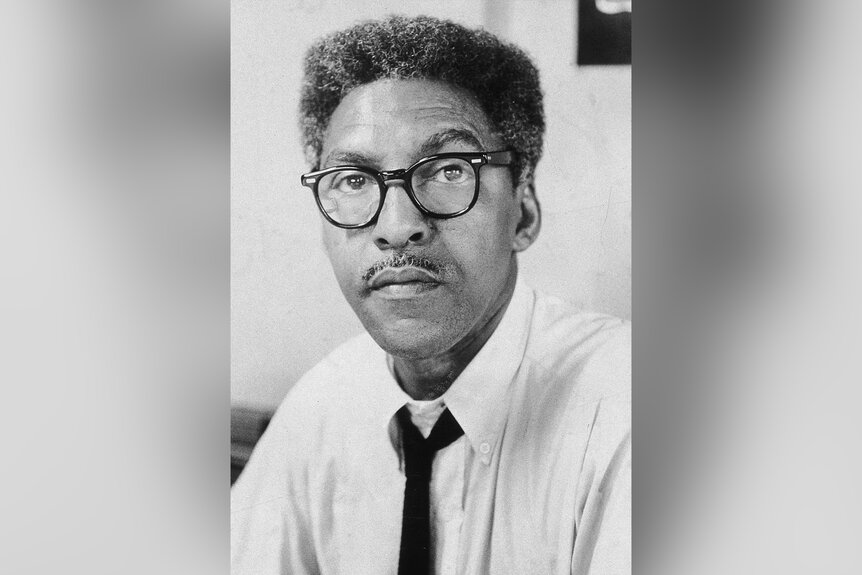Create a free profile to get unlimited access to exclusive videos, breaking news, sweepstakes, and more!
Looking Back On LGBTQ Activist Bayard Rustin, Who Organized The Iconic March On Washington
Bayard Rustin was openly gay when he organized the march in Washington, D.C. during which Dr. Martin Luther King delivered his "I Have a Dream" speech.
He is probably one of the biggest pioneers of the civil rights movement — but you might have never heard of him.
Bayard Rustin was behind the legendary March on Washington, where Dr. Martin Luther King Jr. made his famous “I Have a Dream” speech, as noted by National Public Radio.
He was a mentor and adviser to King for a time even though homophobia was rampant and he "reached international notoriety" because he was openly gay.
RELATED: Meet The Trans-Led Group Helping To Find Unidentified Missing Non-Binary And Trans People
"At a given point, there was so much pressure on Dr. King about my being gay and particularly because I would not deny it, that he set up a committee to explore whether it would be dangerous for me to continue working with him," Rustin told the Blade in the 1980s, according to the Making Gay History podcast.
Despite being openly gay and open in the early 1960s, he still proudly led the landmark 1963 March on Washington for Jobs and Freedom, according to the New York Times.
By that point, he was basically an expert at activism.
Who Was Bayard Rustin?
For decades before that march, Rustin had organized protests and developed action strategies. In 1941, he and A. Philip Randolph organized the March on Washington movement, seeking an end to racial discrimination in hiring practices. He'd go on to organize Freedom Rides in the early 1960s to protest racial segregation.
Born in 1912 in West Chester, Pennsylvania, Rustin learned the power of nonviolence from his grandmother, a Quaker and a member of the National Association for the Advancement of Colored People (NAACP). Because of her affiliation with the NAACP, the Rustin family often hosted guests such as W.E.B. Dubois, according to a biography in Stanford's MLK Jr. Encyclopedia.
What Did Bayard Rustin Do?
By adulthood, he was mesmerized by the nonviolent Indian revolutionary Mahatma Gandhi. Rustin identified as both a socialist and a pacifist and went to prison for refusing to fight in World War II. "We need in every community a group of angelic troublemakers," he wrote, according to Nobody Turn Me Around. "The only weapon we have is our bodies, and we need to tuck them in places so wheels don’t turn."
He was also the victim of several homophobic attacks. And, in 1953, he was arrested for engaging in sexual activity with two men in a parked car in Pasadena, California. He pleaded guilty to "sex perversion" as a result and served 60 days in jail, National Public Radio reported in 2019.
He was granted a posthumous pardon for the conviction in 2020.
Rustin wanted to be a powerful force behind the scenes of civil rights movements, but not the face, National Public Radio reports. Instead he wanted Dr. King to be the image of the march and the movement. (His sexuality also likely played a role as to why he was cast into the background, according to Making Gay History.)
Following the March on Washington, he continued to fight for civil rights, organizing a massive boycott of New York City public schools in 1964 in protest over de-facto segregation. The one-day boycott on Feb. 3 of that year drew 400,000 participants. He was also a strong voice for economic justice, advocating for strong labor unions, as well as LGBTQ rights.
When Did Bayard Rustin Die?
He died in 1987 of cardiac arrest, at age 75, after returning from a humanitarian aid mission in Haiti, according to the Washington Post.
His New York Times obituary identified his partner, Walter Naegle, as his “administrative assistant and adopted son." Though they were partners, Naegle and Rustin decided that adoption was the only way to legalize their relationship and ensure that Naegle, who was 37 years younger than Rustin, would be taken care of in the event of Rustin's death, according to NPR.
"My biological mother had to sign a legal paper, a paper disowning me. They had to send a social worker to our home. When the social worker arrived, she had to sit down with us to talk to us to make sure that this was a fit home," Naegle said. "But, you know, we did what we did because we loved each other and because we were happy together."
Rustin was posthumously awarded the Presidential Medal of Freedom by President Barack Obama in 2013.
(This article was originally published on June 10, 2022. It was updated on June 1, 2023.)



















